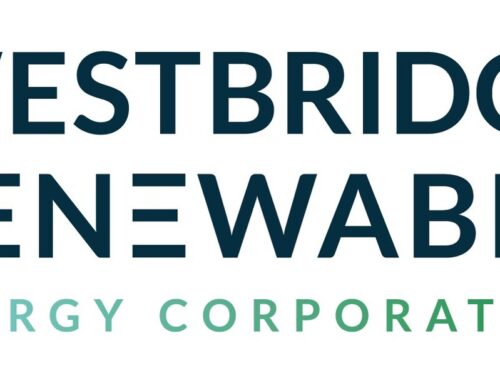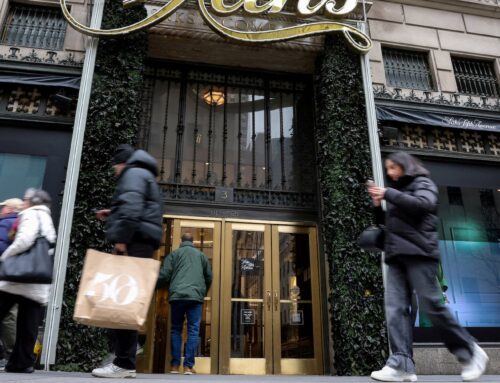Meta faces antitrust claims at trial over Instagram and WhatsApp ownership
April 14, 2025
Facebook parent Meta Platforms faces a high-stakes trial in Washington starting on Monday on claims it built an illegal social media monopoly by spending billions of dollars to acquire Instagram and WhatsApp, in a case in which US antitrust enforcers seek to unwind the deals.
The acquisitions more than a decade ago aimed to eliminate nascent competitors who could threaten Facebook’s status as the go-to social media platform for users to connect with friends and family, the US Federal Trade Commission claims. It filed the case in 2020 during Donald Trump’s first term.
The FTC seeks to force Meta to restructure or sell parts of its business including Instagram and WhatsApp. The trial poses the first major test for the FTC under the second Trump administration. The agency began the investigation that led to the trial during Trump’s first term.
Jennifer Newstead, Meta’s chief legal officer, called the case weak and a deterrent to tech investment in a blogpost on Sunday.
“It’s absurd that the FTC is trying to break up a great American company at the same time the Administration is trying to save Chinese-owned TikTok,” she wrote.
The case poses an existential threat to Meta, which by some estimates earns about half of its US advertising revenue from Instagram, while also giving the public its first real measure of how strongly the new Trump administration will follow up on its promises to take on big tech.
Losing Instagram would be a devastating blow to Meta, said Jasmine Enberg, a principal analyst at market research firm Emarketer.
“It would also severely damage its future user and revenue growth prospects,” Enberg said. “Instagram is now Meta’s biggest money maker in the US, its most lucrative market, where the app accounts for 50.5% of the company’s ad revenues in 2025. Instagram has also been picking up the slack for Facebook on the user front, particularly among young people, for a long time.”
Meta has been making regular overtures to Trump since his election, nixing content moderation policies Republicans said amounted to censorship and donating $1m to Trump’s inauguration. Meta’s CEO, Mark Zuckerberg, has also visited the White House multiple times in recent weeks. Zuckerberg has also purchased a new $23m mansion in DC that would “allow Mark to spend more time there as Meta continues the work on policy issues related to American technology leadership”, a company spokesperson told Politico. The billionaire’s company donated $1m to Trump’s inaugural committee and has unsuccessfully attempted to persuade the president to settle the case against Meta during meetings at the White House.
“The Trump-Vance FTC could not be more ready for this trial,” said an FTC spokesperson, Joe Simonson, adding: “We are blessed with some of the most hardworking and intelligent lawyers in the country who are working around the clock.”
Zuckerberg is expected to testify at the trial, where he will face questioning about emails in which he proposed acquiring the photo-sharing app Instagram as a way to neutralize a potential Facebook competitor and expressed worry that the encrypted messaging service WhatsApp could grow into a social network.
Meta has argued in court papers that its purchases of Instagram in 2012 and WhatsApp in 2014 have benefited users, and that Zuckerberg’s past statements are no longer relevant amid fierce competition from ByteDance’s TikTok, Google’s YouTube and Apple’s messaging app.
How users spend time on social media, and whether they consider the services interchangeable, will be core to the case. Meta will point to an increase in traffic to Instagram and Facebook during TikTok’s brief shutdown in the United States in January as evidence of competition, according to court records.
The FTC claims Meta holds a monopoly on platforms used to share with friends and family, where its main competitors in the United States are Snap’s Snapchat and MeWe, a tiny privacy-focused social media app launched in 2016. Platforms where users broadcast content to strangers based on shared interests, such as X, TikTok, YouTube and Reddit, are not interchangeable, the FTC has argued.
The trial could have far-reaching consequences for the social media industry, according to Forrester’s vice-president of research, Mike Proulx.
“The ramifications of this trial coupled with TikTok’s future in limbo potentially puts the very core of the social media market at play,” said Proulx. “No longer would Meta be its centre of gravity. We haven’t seen anything like this since around 2006-2011 – social media’s earliest days. We’d likely see a renaissance of social media startups looking to grab a piece of new social media world order.”
The US district judge James Boasberg said in a ruling in November that while the FTC has enough evidence to move forward, the agency “faces hard questions about whether its claims can hold up in the crucible of trial”.
The former FTC chair Lina Khan said that Meta resorted to a “buy-or-bury scheme” when it was acquiring players such as Instagram and WhatsApp – if the company could not beat a competitor, it would either acquire the firm or cut off access to Facebook’s network and features. The case was about “free and fair trade”, Khan said in an NBC interview.
“There’s no expiration date when it comes to the illegality of the transaction,” Khan said. “I think there is a way in which the entire social networking ecosystem looks different today because Facebook was permitted to go out and make these acquisitions.”
The trial is scheduled to stretch into July. If the FTC wins, it would have to prove at a second trial that measures such as forcing Meta to sell Instagram or WhatsApp would restore competition.
Losing Instagram in particular could prove catastrophic to Meta’s bottom line.
While Meta does not release app-specific revenue figures, Emarketer forecast in December that Instagram would generate $37.13bn this year, a little over half of Meta’s US ad revenue.
WhatsApp to date has contributed only a sliver to Meta’s total revenue, but it is the company’s biggest app in terms of daily users and ramping up efforts to earn money off tools including chatbots. Zuckerberg has said such “business messaging” services are likely to drive the company’s next wave of growth.
Search
RECENT PRESS RELEASES
Related Post




